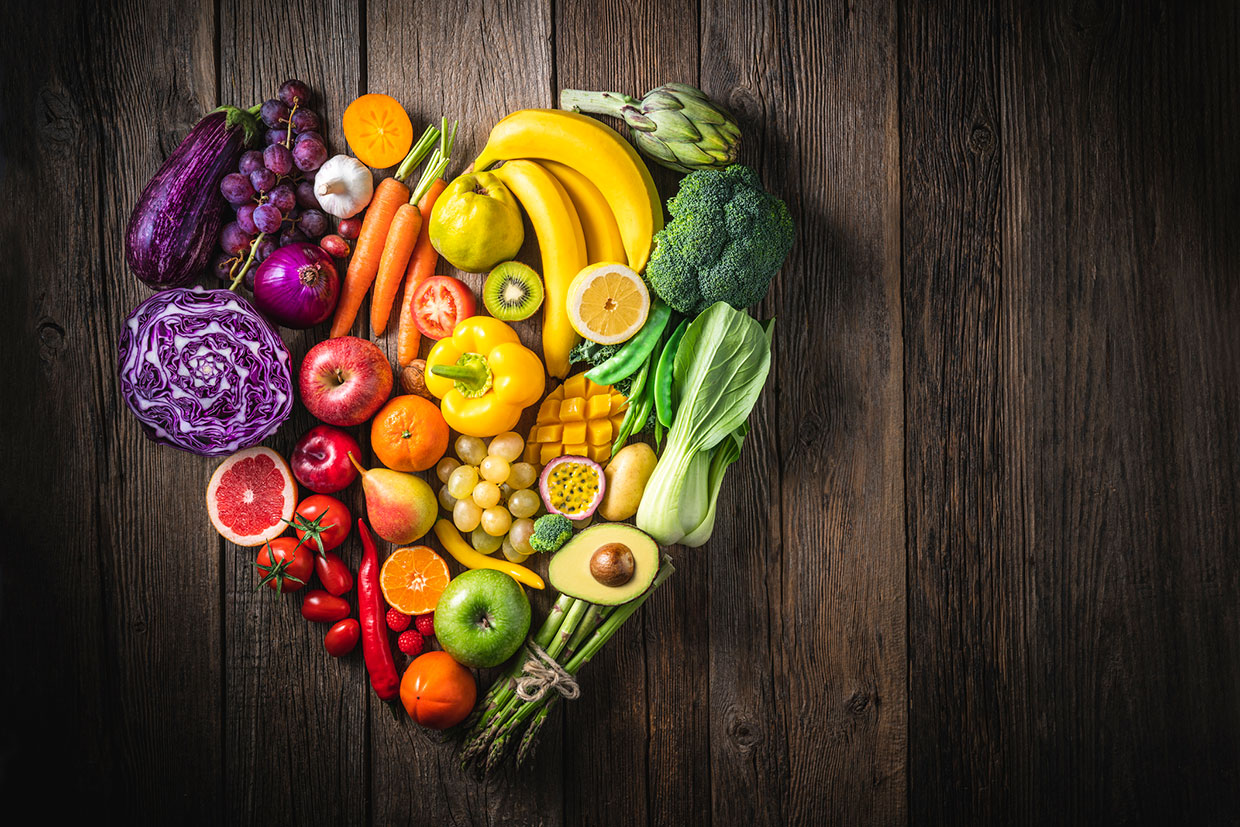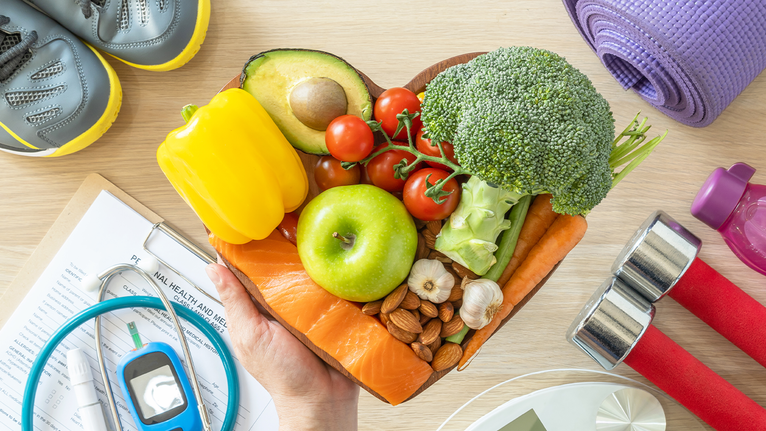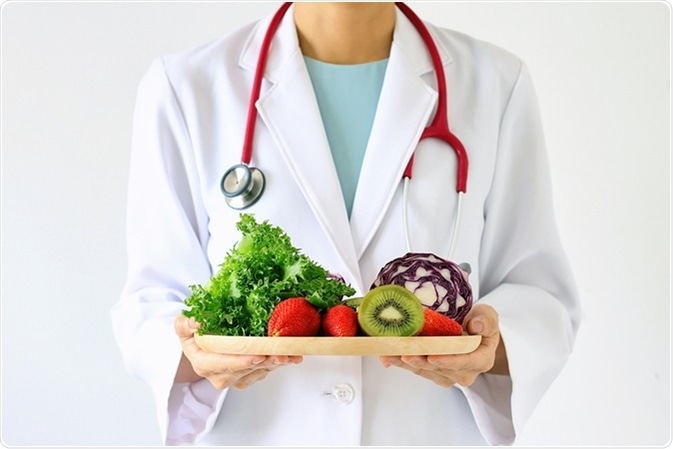Introduction: They say the way to someone’s heart is through their stomach—well, in the case of your own heart, that might actually be true. What you eat plays a crucial role in your heart’s health, affecting everything from cholesterol to blood pressure. Eating the right foods can keep your arteries clear, reduce your risk of heart disease, and boost overall cardiovascular health.
Wondering what should be on your grocery list for a heart-friendly diet? Preventive cardiology dietitian Julia Zumpano, RD, LD, shares a list of heart-healthy foods that’ll help keep your ticker in tip-top shape.
What Makes Food Heart-Healthy?
Your heart is like the engine of your body, pumping blood through a vast system of vessels, delivering oxygen and nutrients to every part of you. Just like any engine, it needs good fuel to run smoothly.
Certain foods can either fuel your heart’s engine or clog up the pipes. Diets high in saturated fats and trans fats are like pouring gunk into your car’s gas tank—they raise your cholesterol, contributing to plaque buildup in your arteries. Over time, this can lead to serious heart issues.
On the flip side, the right foods can help your heart run like a well-oiled machine. Let’s take a look at some heart-healthy options you should add to your shopping cart.
1. Fish: The Omega-3 Boost Your Heart Deserves
If omega-3s were a superhero, they’d be the caped crusader of heart health. These “healthy fats” help prevent plaque buildup in your arteries, lower triglycerides, and increase good cholesterol (HDL). Your heart will thank you!
Top fish choices for omega-3s include:
Salmon
Herring
Mackerel
Halibut
Tuna
Trout
The USDA’s Dietary Guidelines recommend 8 ounces of seafood per week, which can go a long way toward improving heart health. Just remember to watch out for fish with high mercury levels (especially if you’re pregnant), and check the FDA’s guidelines for safer options.
2. Nuts and Seeds: Heart-Healthy Fat in Every Bite
If you can’t get omega-3s from fish, you can still find them in walnuts and seeds like flaxseed, chia seeds, and pumpkin seeds. These foods contain ALA (the plant-based version of omega-3), which also helps reduce inflammation and improve cholesterol levels.
But let’s be real—nuts and seeds are calorie-dense, so pay attention to serving sizes to avoid overindulging. Look for unsalted varieties to keep your sodium intake in check.
3. Berries: Small But Mighty for Your Heart
Berries are like little soldiers in the fight against heart disease. Packed with phytonutrients, these tiny powerhouses fight inflammation and help protect your cells from damage. They can even help lower bad cholesterol (LDL).
The best heart-friendly berries include:
Blackberries
Blueberries
Raspberries
Strawberries
So, go ahead and load up on these sweet, antioxidant-packed fruits. Your heart will thank you!
4. Oats and Whole Grains: The Cholesterol Fighters
Think of oats as the unsung heroes of heart health. They’re high in soluble fiber, which helps lower bad cholesterol levels (LDL). Start your day with a warm bowl of oatmeal and feel the benefits in as little as six weeks!
Other heart-healthy grains include:
Brown rice
Quinoa
Whole wheat
Farro
5. Legumes: A Plant-Based Protein Powerhouse
Beans are more than just a staple in chili—they’re a heart-healthy food that can help reduce cholesterol and improve blood pressure. Whether you prefer lentils, black beans, or garbanzo beans, legumes are an affordable, high-protein addition to your diet.
6. Soy-Based Products: Meatless, But Heart-Healthy
If you’re looking to reduce animal fats, swapping in soy-based products like tofu or edamame can help lower your cholesterol while providing protective benefits to your heart. Plus, they’re a fantastic plant-based protein source!
7. Veggies: Eating the Rainbow for a Healthy Heart
“Eating the rainbow” isn’t just a cute saying—it’s a great guideline for heart-healthy eating. Each color represents different nutrients and antioxidants that benefit your heart.
Orange: Carrots, sweet potatoes, acorn squash
Red: Tomatoes, beets
Yellow: Yellow peppers
Green: Spinach, kale, lettuce, Swiss chard
Incorporating a variety of colorful vegetables helps protect your arteries, regulate blood pressure, and improve blood flow.
8. Dark Chocolate: Sweet News for Your Heart
Surprised to see dark chocolate on the list? Don’t worry, it’s not all about indulgence. Dark chocolate is loaded with flavonoids, antioxidants that help lower blood pressure and improve blood flow by relaxing your blood vessels. But remember, moderation is key! Stick with chocolate that’s at least 70% cacao for maximum heart benefits. And no, milk chocolate and white chocolate don’t quite make the cut.
Small Changes Lead to Big Heart Health Gains
We get it—making big changes to your diet can feel overwhelming. But you don’t have to overhaul your entire grocery list in one go. Start small! Try swapping out a snack for an apple instead of a cookie, or add a serving of fish to your week. These small swaps can help lower your cholesterol, reduce inflammation, and keep your heart strong over time.
Final Thoughts
While genetics, age, and other factors play a role in your heart health, what you eat is something you can control. The Mediterranean diet—rich in fruits, vegetables, healthy fats, and whole grains—is considered the gold standard for heart health.
So, next time you head to the store, fill your cart with heart-healthy foods. And remember: Eating for your heart doesn’t have to be boring or tasteless—delicious, nutrient-rich foods can keep your ticker ticking for years to come.
Call to Action: Want to start taking better care of your heart? Begin with a few heart-healthy foods today and watch your health improve over time. Small changes add up, and your heart will thank you for it!




